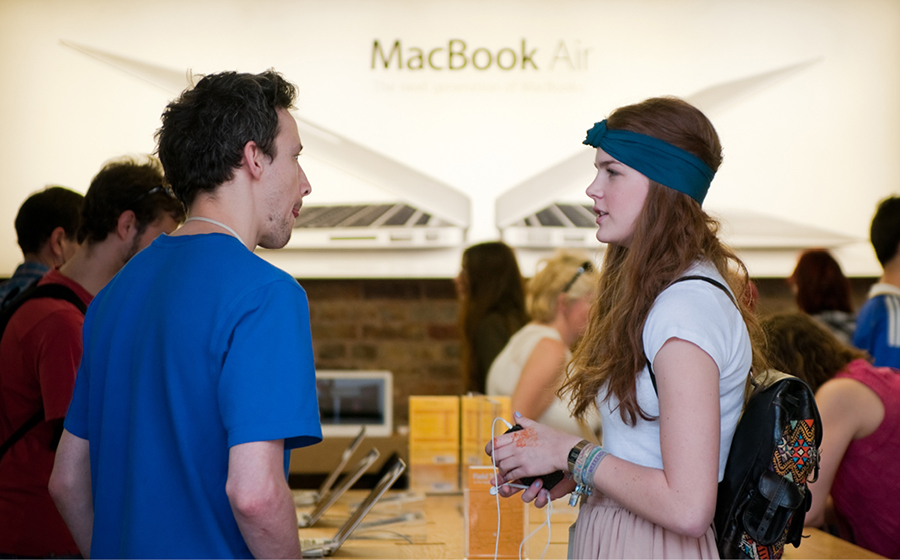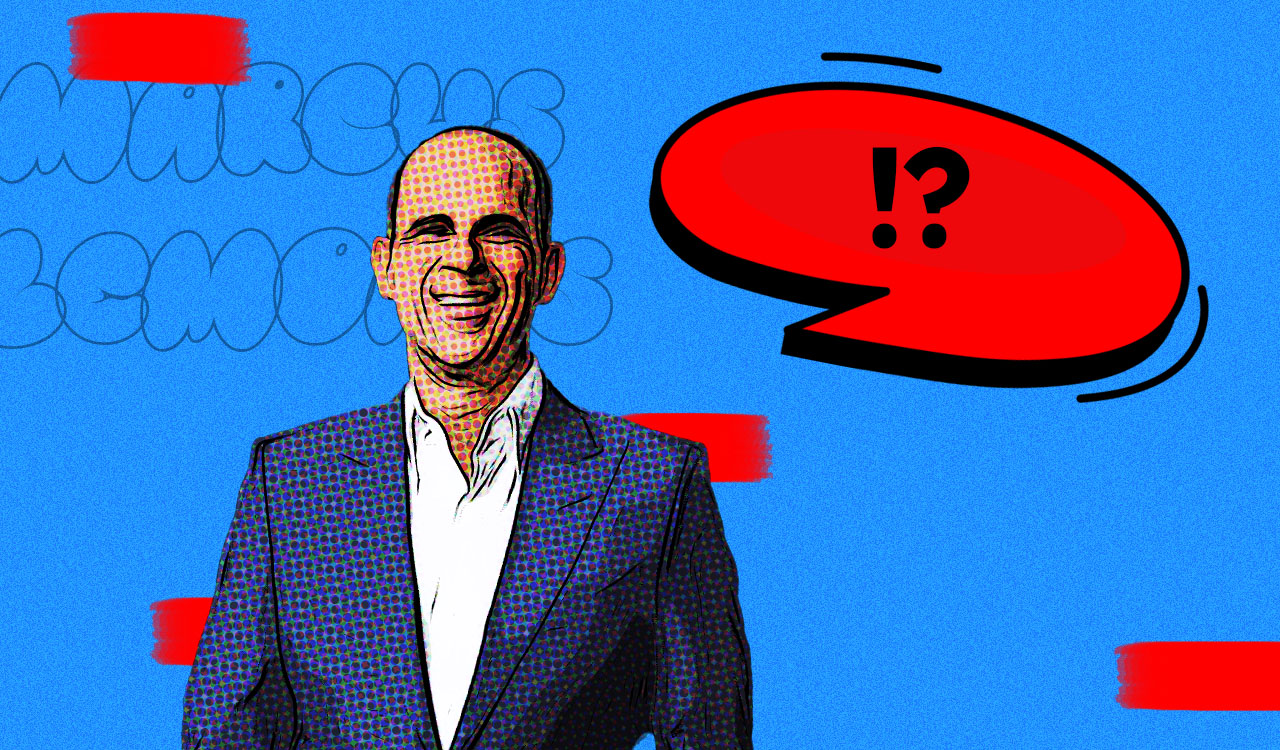For those of us in the old-world economy, we might long for the \”good old days\” when hiring was a relatively easy, decidedly non-tech process in retail. It may not be modern, but all we had to do was find:
- Warm bodies with a heartbeat to show up on time and stock the shelves.
- Cashiers who wouldn\’t steal from the till.
- Store managers who knew how to ride herd on everyone else.
- Executives who grew up in the business and had good, old-fashioned instincts; or graduate-degree Ivy Leaguers who used the right buzzwords on their curricula vitae.
In short, stereotypical retail worker bees who tended to rely on instinct and intuition to give customers what the retailers thought they wanted and needed. That was so last century.
Looking Ahead
Those old days are out of touch in today\’s complex, interconnected marketplace. Then, you rarely heard the words, career path, flexibility, diversity, gender, telecommuting or anything technology related. HR departments, whose value I\’ve always considered highly suspect, were judged on volume and how quickly they could fill a slot rather than who they were filling it with. The mandate was \”the now\” not \”the future.\”
Of course, the industry always needs reliable, self-starters with strong communication skills and positive attitudes that flourish in a team environment. This has been true since Plato was a pup and likely to continue until nuclear winter forces us to close up shop.
However, the retail industry is becoming more progressive in thinking about the people it needs beyond winning the next holiday sale season. The retail world will always need merchandisers, sales associates, marketers, clerks, techies and leadership. But there is a distinct recognition that adaptable, well-rounded individuals who refuse to be siloed by outmoded job descriptions will lead the way. And the nextgen workforce is reshaping the workplace culture as well as the logistics and mechanics of running a successful retail enterprise.
Apple, the company that we just love to hate has taken some innovative steps redefining its retail operations with new job titles and renamed positions.
For the Apple stores, the company has replaced \”experts\” with \”pros\” as the people who are most familiar with product lines. \”Creative pros,\” who specialize in learning, are one step below the pros. \”Technical experts\” and \”geniuses\” focus on eliminating wait times in the stores and also do some tech repairs. Back-of-the-house inventory specialists are \”operations specialists\” and \”operations pros.\” At the same time, Apple renamed different parts of the store, making the sales floor the \”product zone\” instead of the \”red zone.\”
Products and People
You might argue that this is mostly semantics and that the changes are unnecessary or overly complicated. This is an industry that loves its buzzwords, so who am I to argue? However, Apple is making the point that nothing should stay the same and stuck in stasis if retail is to progress. The needs of today\’s retail environment are vastly different than they were years ago. So, the mandate is no longer simply to bring people products they want, but now to foster a workforce of people educated in bringing products to market and selling them as consultants and partners.
The overall goal in retail is to attract shoppers to stores that offer something that they actually want or inspires them to own and provide a unique experience. Why shouldn\’t this customer-centric dedication permeate the workplace culture from the associates in the store, behind-the-scenes experts all the way up to the C-suite?
Managing a relevant workforce is where factors like diversity and generational turnover come into play. General logic is to hire people that can relate to your customers. This would preclude a leadership team of \”older white males.\” It would also preclude a corps of sales associates who do not reflect your customer base. By the same token, stacking the deck exclusively with younger, more tech-savvy employees who can attract younger customers doesn\’t mean replacing the entire boomer workforce. A multi-generational workforce reflects the population. Having a variety of employees with different backgrounds creates an opportunity to transfer knowledge from one generation to another, one skillset to another. Mentoring and reverse mentoring is invaluable. And millennials are not the apathetic, ethereal group that some would have you believe. Bottom line-don\’t get caught up in false stereotypes.
One legal note here. Don\’t make these workforce changes just to avoid age, gender or racial discrimination lawsuits. The central issue is to create a diverse team to best to serve customers and therefore help the company profit. Today\’s HR strategy is to get the right people to the table to work together holistically to solve problems and move the innovation needle forward. It\’s about what traits good people, store employees, managers or executives bring to the table.
The Right Stuff
Some academics have termed these shifts, \”Organizational Citizenship Behavior.\” This was first studied in the 1970s and basically refers to proactive people who do their jobs in a way that benefits both co-workers and the company. Interestingly, studies show that these citizen employees might not be the highest performers, but they help keep a company culture positive and supportive.
Citizen employees are not a replacement for those with higher technical skills or expertise in other areas. But these are the people that should be equally rewarded for the positive impact they have on the company\’s productivity and the people around them.
New Tech Experts
Living in the digital economy is changing work requirements. For one thing, studies have shown that over one-third of employees are telecommuting in some fashion and this is likely to increase over time. As Fortune magazine pointed out, this means that the traditional office is no longer a physical requirement. It becomes a resource for those who choose to do their jobs at a company base.
Technology has become a core competency for virtually every company many of which collaborate with third parties to implement tech solutions. Partnerships are viable strategies to identify the expertise you need to operate in a digital economy without having to build or buy expensive software platforms.
Tech requires digital skills throughout the workforce. Multi-year tech plans that were once handled centrally by the chief information officer now require digital and innovation officers with specific skillsets who can work across all divisions. And it\’s no longer enough to be a data programmer or IT specialist. Old security roles have morphed into digital risk officers and cyber security experts who are charged with identifying and preventing data breaches that have plagued virtually every company.
On another front, online buying on smartphones means greater demand for mobile marketing people who can take charge of increasingly complex websites and make responsive mobile shopping easier. There has also been rising demand for social media engineers-probably a team of them-who will handle a company\’s blogs, influencers and online advertising efforts. To keep all the data up-to-date, companies need analytics managers, engineers or external advisors. Speaking of online activities, some of the new titles are a little over the top, such as the meme manager. Retail buyers, traditionally the dream job for younger people getting into retail, are less about fashion and glam. Companies are looking for those that can crunch the numbers and analyze trends, negotiate supply and delivery and make sure financial reports are accurate, real-time.
Job titles and functions inevitably change. However, most experts warn against rebranding job titles with cutesy names like content dude, e-wrangler, IT ninja or director of first impressions (the receptionist). Trying to be cool is one thing but being too clever is confusing.
This is the Associate Content Engineer reporting for the Robin Report signing off. Come to think of it I\’ve been called a lot worse.



